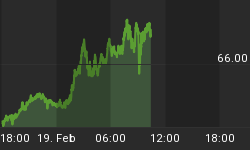Gasoline prices have seen a steep decline over the past three months. Since hitting a peak on July 20, the national average price for a gallon of gasoline has declined 52 cents, which should inject approximately $120 to $130 billion into the pocketbooks of consumers, with more expected on the way. Although, the decline in the cost of energy and other commodities will somewhat offset the overall fall in the rate of personal consumption, the US consumer is well on its way to pulling back the reins on spending in a manner that has not been seen since the early 1980's.
Real personal consumption looks to be on a pace to decline -3.0% in Q3'08 and will almost certainly see a second consecutive negative quarter during the final three months of the year. If consumption were to decline at a similar rate during the final quarter of the year it will be the first time since 1951 that changes of that magnitude have been observed in real personal consumption.

The combined impact of falling housing prices, the reduced value of equity portfolios and bleak job and income prospects are in the process of reshaping consumer expectations despite the positive impact from reduced gasoline prices on the bottom line of consumers. Recent data on retail sales provide tangible evidence that the consumer is in the process of a once in a generation retrenchment.
The primary question outstanding is not if consumers will cut back spending, but where and how. We anticipate that the majority of the reduction in consumption will occur in the ex food and energy category, with particular emphasis on imported goods. On a monthly basis, demand for imported goods declined from $194.94bln in July to $188.54bln in August. Inside the goods category that declined -3.3% in August, demand for computer accessories, household electronics and appliances all experienced declines.

Going forward we expect the consumer to begin increasing her rate of savings over the next year as individuals adjust to a diminished employment and income picture. Reduced demand for goods overall and imported goods in particular, will hit the retailers quite hard and curtail overall growth. The approximately $300bln output gap that the majority in Congress appear to be targeting with their new proposal will not provide direct rebate checks to consumers, but looks to be aimed at bailing out states and municipalities and focused on job creation vis-à-vis infrastructure projects. Thus, the largest decline in retail prices that have been recorded in the post war era looks to have little impact over the remainder of the year and well into 2009 on the behavior of the consumer.
















